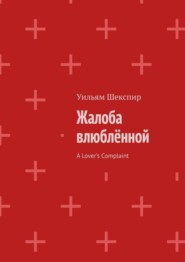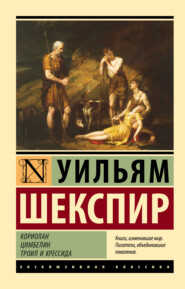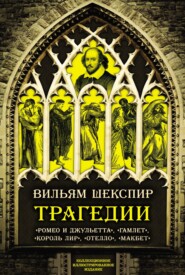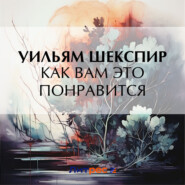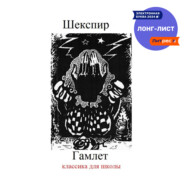По всем вопросам обращайтесь на: info@litportal.ru
(©) 2003-2025.
✖
Tragedies. King Lear. Othello. Julius Ceasar / Трагедии. Король Лир. Отелло. Юлий Цезарь
Настройки чтения
Размер шрифта
Высота строк
Поля
Into what dangers would you lead me, Cassius,
That you would have me seek into myself
For that which is not in me?
CASSIUS
Therefore, good Brutus, be prepared to hear:
And since you know you cannot see yourself
So well as by reflection, I, your glass,
Will modestly discover to yourself
That of yourself which you yet know not of.
And be not jealous on me, gentle Brutus:
Were I a common laugher, or did use
To stale with ordinary oaths my love
To every new protester; if you know
That I do fawn on men and hug them hard
And after scandal them, or if you know
That I profess myself in banqueting
To all the rout, then hold me dangerous.
Flourish, and shout
BRUTUS
What means this shouting? I do fear, the people
Choose Caesar for their king.
CASSIUS
Ay, do you fear it?
Then must I think you would not have it so.
BRUTUS
I would not, Cassius; yet I love him well.
But wherefore do you hold me here so long?
What is it that you would impart to me?
If it be aught toward the general good,
Set honour in one eye and death i’ the other,
And I will look on both indifferently,
For let the gods so speed me as I love
The name of honour more than I fear death.
CASSIUS
I know that virtue to be in you, Brutus,
As well as I do know your outward favour.
Well, honour is the subject of my story.
I cannot tell what you and other men
Think of this life; but, for my single self,
I had as lief not be as live to be
In awe of such a thing as I myself.
I was born free as Caesar; so were you:
We both have fed as well, and we can both
Endure the winter’s cold as well as he:
For once, upon a raw and gusty day,
The troubled Tiber chafing with her shores,
Caesar said to me ’Darest thou, Cassius, now
Leap in with me into this angry flood,
And swim to yonder point?’ Upon the word,
Accoutred as I was, I plunged in
That you would have me seek into myself
For that which is not in me?
CASSIUS
Therefore, good Brutus, be prepared to hear:
And since you know you cannot see yourself
So well as by reflection, I, your glass,
Will modestly discover to yourself
That of yourself which you yet know not of.
And be not jealous on me, gentle Brutus:
Were I a common laugher, or did use
To stale with ordinary oaths my love
To every new protester; if you know
That I do fawn on men and hug them hard
And after scandal them, or if you know
That I profess myself in banqueting
To all the rout, then hold me dangerous.
Flourish, and shout
BRUTUS
What means this shouting? I do fear, the people
Choose Caesar for their king.
CASSIUS
Ay, do you fear it?
Then must I think you would not have it so.
BRUTUS
I would not, Cassius; yet I love him well.
But wherefore do you hold me here so long?
What is it that you would impart to me?
If it be aught toward the general good,
Set honour in one eye and death i’ the other,
And I will look on both indifferently,
For let the gods so speed me as I love
The name of honour more than I fear death.
CASSIUS
I know that virtue to be in you, Brutus,
As well as I do know your outward favour.
Well, honour is the subject of my story.
I cannot tell what you and other men
Think of this life; but, for my single self,
I had as lief not be as live to be
In awe of such a thing as I myself.
I was born free as Caesar; so were you:
We both have fed as well, and we can both
Endure the winter’s cold as well as he:
For once, upon a raw and gusty day,
The troubled Tiber chafing with her shores,
Caesar said to me ’Darest thou, Cassius, now
Leap in with me into this angry flood,
And swim to yonder point?’ Upon the word,
Accoutred as I was, I plunged in






